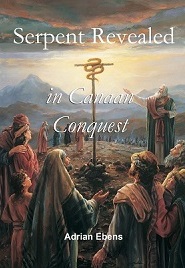Goelism
Goel (ga'al, Strong’s H1350) is the Hebrew word translated as kinsman redeemer or avenger. The Hebrew people operated under the law of Goelism, best illustrated by an account in Numbers 35 and the entire book of Ruth. These principles flow throughout the entire scope of Biblical history and into the prophetic future.
This topic is key to understanding the whole plan of salvation. If you understand the operation of Goelism and how it applies to the life of Yahushua (Jesus Christ) the plan of salvation will come alive. It is this author’s purpose in sharing this study for you to identify yourself in the plan for we are all involved. There are no sideline spectators in this plan of salvation. This is the first post of this ongoing study so welcome to the topic.
In Numbers chapter 35 we have the recorded story revolving around the use of the cities of refuge. There were 6 cities designated throughout the nation of Israel where a man who has taken another man’s life unawares, or, as we would say today, involuntarily, could flee in order to stand trial and be found guilty or acquitted of manslaughter. Regardless of the outcome of the trial the person who had taken another man’s life in order to receive a trial had to go to one of these cities as the “avenger” or “next of kin” was under obligation to end the perpetrators life. This “avenger” was called the Goel. Once inside the city the avenger could no longer pursue the one who was fleeing, hence the term “city of refuge.”
Numbers 35:11. “Then ye shall appoint you cities to be cities of refuge for you; that the slayer may flee thither, which killeth any person at unawares” The practice of Goelism, that is, of the nearest relation of an individual who was killed being bound to demand satisfaction from the author of his death, existed from very remote antiquity.
Genesis 4:14-15 “Behold, thou hast driven me out this day from the face of the earth; and from thy face shall I be hid; and I shall be a fugitive and a vagabond in the earth; and it shall come to pass, that every one that findeth me shall slay me. And the LORD (YHWH) said unto him, Therefore whosoever slayeth Cain, vengeance shall be taken on him sevenfold. And the Lord (YHWH) set a mark upon Cain, lest any finding him should kill him.”
Genesis 27:43-45 “Now therefore, my son, obey my voice; and arise, flee thou to Laban my brother to Haran; and tarry with him a few days, until thy brother's fury turn away; until thy brother's anger turn away from thee, and he forget that which thou hast done to him: then I will send, and fetch thee from thence: why should I be deprived also of you both in one day?”
It seems to have been an established usage in the age of Moses; and although in a rude and imperfect state of society, it was a natural and intelligible principle of criminal jurisprudence.
It was also liable to many great abuses; the chief of the evils inseparable from it is that the kinsman, who is bound in duty and honor to execute justice, will often be precipitated, little disposed, in the heat of passion, or under the impulse of revenge, to examine into the circumstances of the case, to discriminate between the premeditated purpose of the assassin and the misfortune of the unintentional homicide. Moreover, it had a tendency, not only to foster a vindictive spirit, but in case of the Goel being unsuccessful in finding his victim, to transmit animosities and feuds against his descendants from one generation to another.
This is exemplified among the Arabs in the present day. Should an Arab of one tribe happen to kill one of another tribe, there is “blood” between the tribes, and the stain can only be wiped out by the death of some individual of the tribe with which the offense originated. Sometimes the penalty is commuted by the payment of a stipulated number of sheep or camels. But such an equivalent, though offered, is as often refused, and blood has to be repaid only by blood.
Romans 16:11 “Salute Herodion my kinsman. Greet them that be of the household of Narcissus, which are in the Lord.”
Least you think this topic is just an Old Testament topic Paul makes mention of Herodion as his kinsman. As this stream of truth flows through scripture you will begin to see how all the authors of the Bible understood this perfectly well and make reference to it. Have a blessed day.
Goelism #2–Goel Pays the Price of Redemption
Goelism #3–Boaz, Naomi, and Ruth
Goelism #4–Satan, The Nearer of Kin
Goelism #5– Battle of the Goels
Goelism #6–The Sandal Must Come Off





